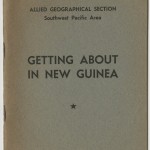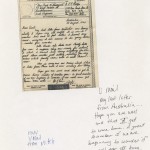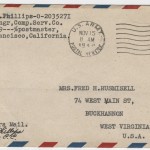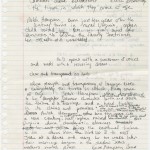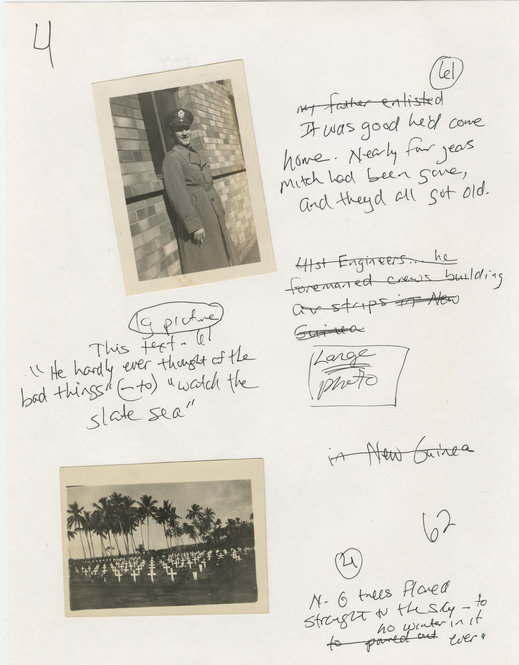
Known for the family dynamics she enmeshes in her work, Jayne Anne Phillips uses her own family history as a source for character and plot development in her debut novel Machine Dreams (1984). Phillips chronicles one family, the Hampsons, to explore narratives that span from the years leading up to World War II through the Vietnam War.
Phillips’s papers, which are now accessible at the Ransom Center, include letters, travel ephemera, army pamphlets, and public service announcements. Drawing on wartime and post-war letters written by her father, and addressed to his aunt, Phillips captures the distress of mid-twentieth-century America. The letters also inform character development in Machine Dreams.
Phillips incorporates specific language and usage from the letters throughout the novel. Her father continually sends love to “the kids,” but seldom makes specific mention of the names of his young cousins. Borrowing this language in a chapter titled “The House at Night,” Phillips writes:
“She heard faintly her brother breathe and whimper; in these summer days the artificial disruption of school was forgotten and the fifteen months of age separating them disappeared; they existed between their parents as one shadow, the kids, and they fought and conspired with no recognition of separation.”
Seeing Phillips’s papers is like gaining access to an era of American life. Family photographs in the archive supplement the early drafts of Machine Dreams, which Phillips scribbled in spiral notebooks. Annotations on photographs give meaning to otherwise nameless faces, revealing the ways Phillips develops her characters and narratives. It appears that personal relics guide Phillips’s process in the most intimate of ways—through family memories.
Phillips was a finalist for the 2009 National Book Award for her novel Lark & Termite and is the author of MotherKind (2000), Shelter (1994), Black Tickets (1979), and Fast Lanes (1984).
Please click on the thumbnails below to view full-size images.
